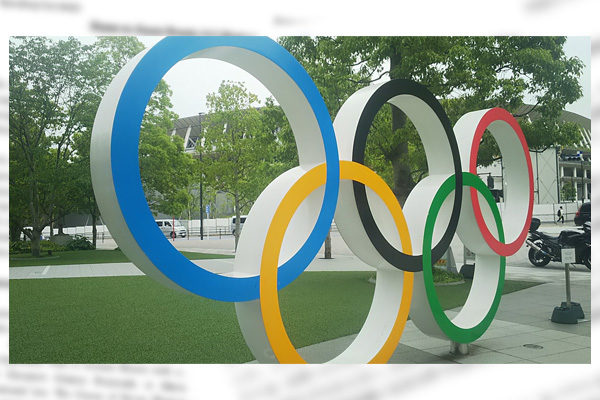One month and a half ahead of the Tokyo Olympics, whether human lives or Olympics are more important has become a red-hot issue at the National Diet parliament and in the media world. But I would like to note that there is a third choice that would strike a balance between human lives and the Olympics through thoroughgoing coronavirus infection control. Why do Japanese lawmakers fail to call for taking all possible measures against novel coronavirus infections to make the Olympics successful? As pointed out by JINF President Yoshiko Sakurai in Speaking Out #798, “hosting the Olympics would lead the Japanese to restore real power that we have forgotten.” The Olympic would also produce economic effects.
Recommending hypochlorous acid water and photocatalysts
On May 12, a “supra-partisan league of parliamentarians for considering infection control from the viewpoints of materials and methods” held its inaugural meeting at a large conference room of the First Members’ Office Building of the House of Representatives, with participants including some 50 lawmakers. I also attended the meeting. Former regional revitalization minister Satsuki Katayama took the chair of the league and told the meeting: “All Diet members now should consider how to prevent infections. We cannot fight against the current difficulties without any process to utilize and improve effective infection prevention measures.”
As noted in my Speaking Out #749 on December 21 last year, hypochlorous acid water, ultraviolet rays, photocatalysts and other scientific or engineering means to effectively kill viruses should all be mobilized. Even after the Olympics, they can be used at department stores, restaurants, movie theaters, hospitals, nursing care facilities, nurseries, elementary/middle/high schools, colleges and universities, business offices, homes and all other sites, contributing to mitigating excessive burdens on healthcare facilities substantially and reviving Japan’s economic power.
In Western countries where vaccination has made progress, new infections have rapidly decreased, with normal life being restored. But the Healthcare Support Center of the National Cerebral and Cardiovascular Center in Japan has indicated that vaccines effective against spreading novel coronavirus variants would have to be given regularly, probably every six month. Vaccines are a game changer, but not almighty.
Old-fashioned Japanese regulations
The U.S. Environment Protection Agency has prepared a list of recommendable disinfectants against novel coronaviruses, based on which the Center for Disease Control and Prevention has conducted infection control measures. The CDC has cited the “improvement of air quality” as one of such measures, emphasizing spatial sterilization. In Japan, however, the health ministry does not allow the Olympic and Paralympic Organizing Committee to purchase spatial sterilization equipments.
Hypochlorous acid water is a Japan-made technology used over more than 10 years. A company has shipped more than 8 million bottles of hypochlorous acid water as its commodities. Impediments to spatial sterilization in Japan include old-fashioned regulations represented by the Act on Securing Quality, Efficacy and Safety of Products Including Pharmaceuticals and Medical Devices. There are massive public safety data about hypochlorous acid water regarding food safety, agrichemicals and animal drugs. These data should be put under a centralized control like the EPA list to diffuse hypochlorous acid water for infectious disease prevention including spatial sterilization.
Tadashi Narabayashi is a specially appointed professor at the Tokyo Institute of Technology and a director at the Japan Institute for National Fundamentals.


